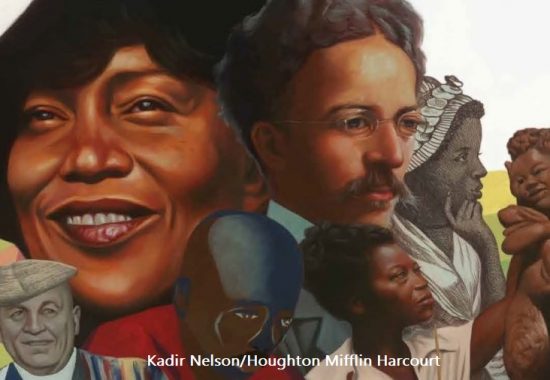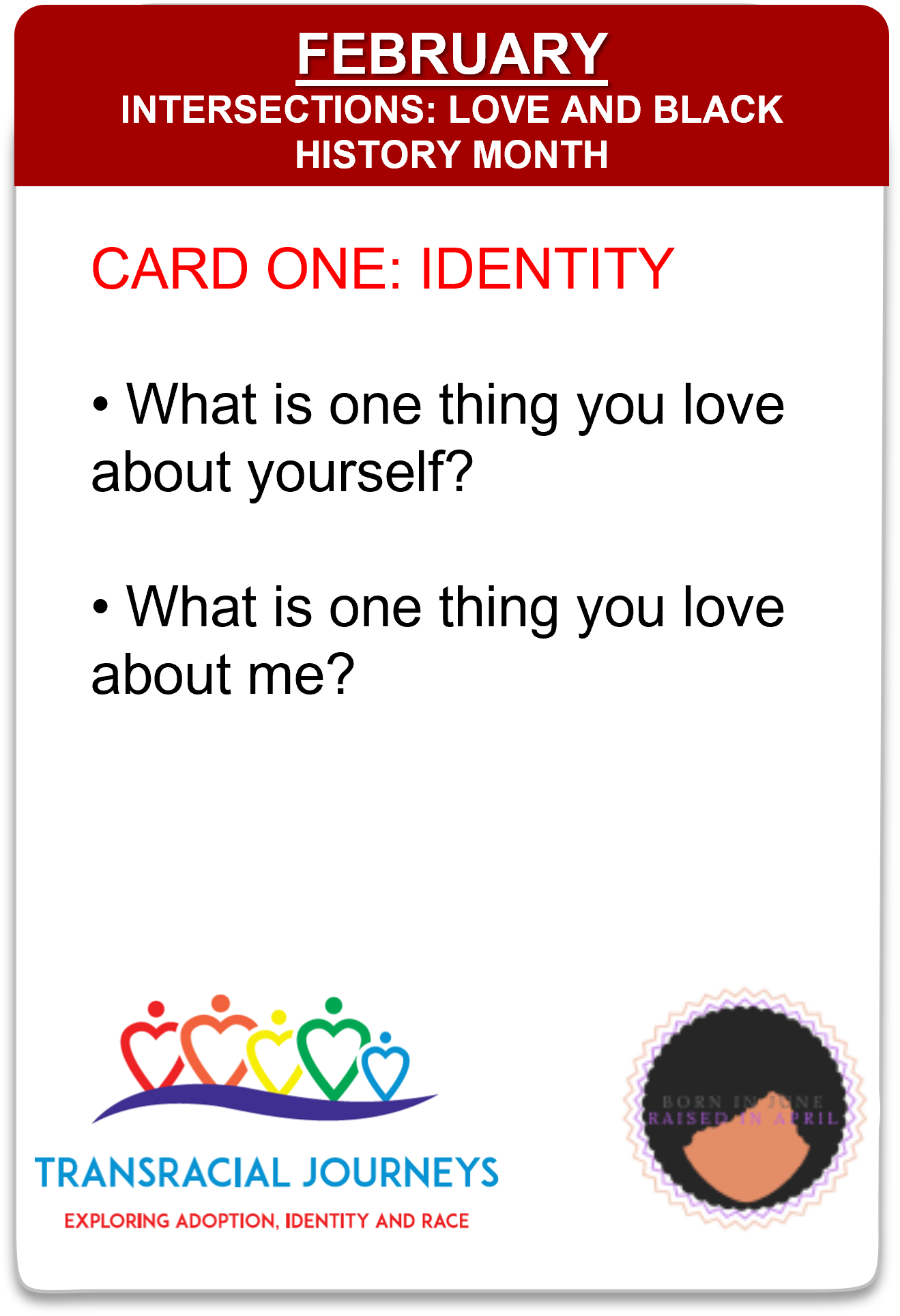In February, we honor Black History and it’s also the month lean into love. In April’s February card for identity, she opens the door for children to ask parents: “What is one thing you love about yourself?” and “What is one thing you love about me?” Let’s break those questions down a bit more….
Whether you sit down with your children or not, ask yourself, what do I love about my child? Write down your answer. I know there’s loads to love about our kids. I bet your list is really long. Once you’ve written down some things, come back to this article.
Black History and love come into play for families specifically like ours, families that are Black and White. In your list, did you write anything about loving your child’s Black culture, their Black heritage, skin or hair? How are you expressing your love of your child’s racial identity?
Our Relationship With Black History, Black Friends and Racial Identity
Black History and love come into play for families specifically like ours, families that are Black and White. In your list, did you write anything about loving your child’s Black culture, their Black heritage or even their Blackness? How are you expressing your love of your child’s racial identity?
A friend once asked how to help his child form friendships with other Black children. I asked him, do you have any Black friends yourself? Does your child see you loving Black people in addition to them? This dad had no Black friends, so it wasn’t any wonder that his child didn’t have any either. How can our kids be or achieve something they’re rarely exposed to?
Ask yourself, do I just love my Black child or do I go further and have relationships with people that are Black? In working to build these relationships, we’re not only availing ourselves of the joys of new friendship but we’re also showing our children we don’t just love one Black person, but many. And remember, children are often noticing and internalizing things even when they don’t always have the words to articulate how they feel about things.
Sometimes, walking this path can be lonely. My Black child didn’t want to participate much in reading about Black history or literature. My Black child didn’t want to attend marches with me for Tamir Rice. Tamir was shot and killed by police outside the very city recreation center we attended for swim meets and family art classes. My Black child didn’t want to attend Black museum exhibits with me much either.
Some White friends and family members thought I was crazy for raising my kids in the middle of the city. It was alienating for me and I didn’t have the support of Transracial Journeys families because some of this happened before our small transracial adoption support network existed. I walked, I cried, I attended, I viewed, and I listened for years often alone. If either of my children came along with me to these events, it was more often my White daughter.
I didn’t realize until recently that doing these things was an act of love and support for my Black child and her racial identity. All along this journey, she was really watching me with big eyes. I know now that doing all of these things not only contributed to the growth of my child’s racial identity, but as she grew, it set down more of an ease to have conversations about race that were initiated often by her. I know it made her feel much more certain of my love for her because I worked for relationship and community with other people like her.
If I could go back in time and ask advice from “future Avril”, I’d love to have heard,
“love your child, love her culture, love her family of origin… just love her people and in turn, you love your child and your child will have a better chance to truly love themselves””...
This post is from our February, 2022, newsletter. If you would like to get our newsletter in your inbox each month, as well as information about our annual Transracial Journeys Family Camp and our monthly Zoom call to provide support for our transracial adoption parents please subscribe.


